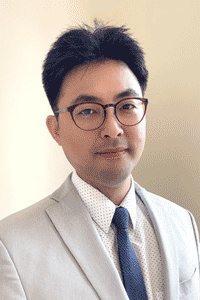
Wookjae Heo
Our Bounded Rationality
In the 1950s, behavioral economists raised the concept of bounded rationality. There are many nuances to it, but to put it simply, bounded rationality says that we are not rational at all. Because of bounded rationality, we can believe irrational statements that lead to poorer life decisions and, consequently, lower well-being. Financial well-being is one important component of well-being and it is an aspect that I care deeply about. From my own experience, I have found that college students can sometimes hold beliefs that hinder their financial well-being. Here are a few that I hope to dispel.
- Investing is the job of professionals, not mine: No. Right after graduating college, investments such as retirement plans, health plans, insurance plans and educational plans will already be important to consider. Therefore, I recommend investing a small amount of money. For instance, go to Purdue Federal Credit Union and open an account for a certified deposit or money market instead of a general savings account. Or, download an app on your phone and begin investing with a small amount of money -for example, $20 per month. Don’t be afraid of failing earlier in money management. Losing a small amount in your 20s will help you invest wisely in your 30s.
- I don't want to use credit cards or loans: No. Credit usage will build your credit score in the future. If you do not spend using credit cards or obtain small loans, you will have a “null credit score”, which is almost the same as zero credit. Therefore, considering future loans in our lives (e.g., auto loans, mortgage, etc.), a small amount of usage (30 –50% of the credit limit) of credit will help to build good credit. A higher credit score offers a lower rate of interest on any type of loan. Of course, make sure not to spend more than you can repay each month.
- There are low-risk, high-return opportunities: No! If there is anyone who says, “My product is low risk but has a high return,” it is almost always a scam. Don’t expect profits without taking risks. Instead, we should diversify investments to manage risks.
- I have no money to manage now in my 20s: No, even $20 is seed money to begin your financial life. Please, practice and learn. As a young adult, I highly recommend practicing with investment, savings and other financial products. Of course, be careful that early success does not lead to overconfidence.
Based on my research over 10 years about investment habits, those who have more financial knowledge and experience will maintain better financial outcomes in life. Many students might not find practicing good financial habits fun, but as George Soros said, “Good investing is boring. If you’re having fun you’re probably not making any money”. However, it is imperative to keep practicing good financial habits and learning about all of the products in our modern complex capitalist economy, or you might eventually incur larger financial costs.
Here are some resources that you can consult to learn more about relevant financial topics:
- Purdue HHS Extension for family financial management posts many useful resources for students to learn.
- Governmental entities such as the Consumer Financial Protection Bureau (CFPB) offer lots of basic information for credit building.
- Federal Credit Unions (FCUs) such as Purdue Federal Credit Union can be your first place to practice financial products. Because most FCUs are non-profit financial institutions, they are offering better deals for financial newbies compared to commercial financial companies.
